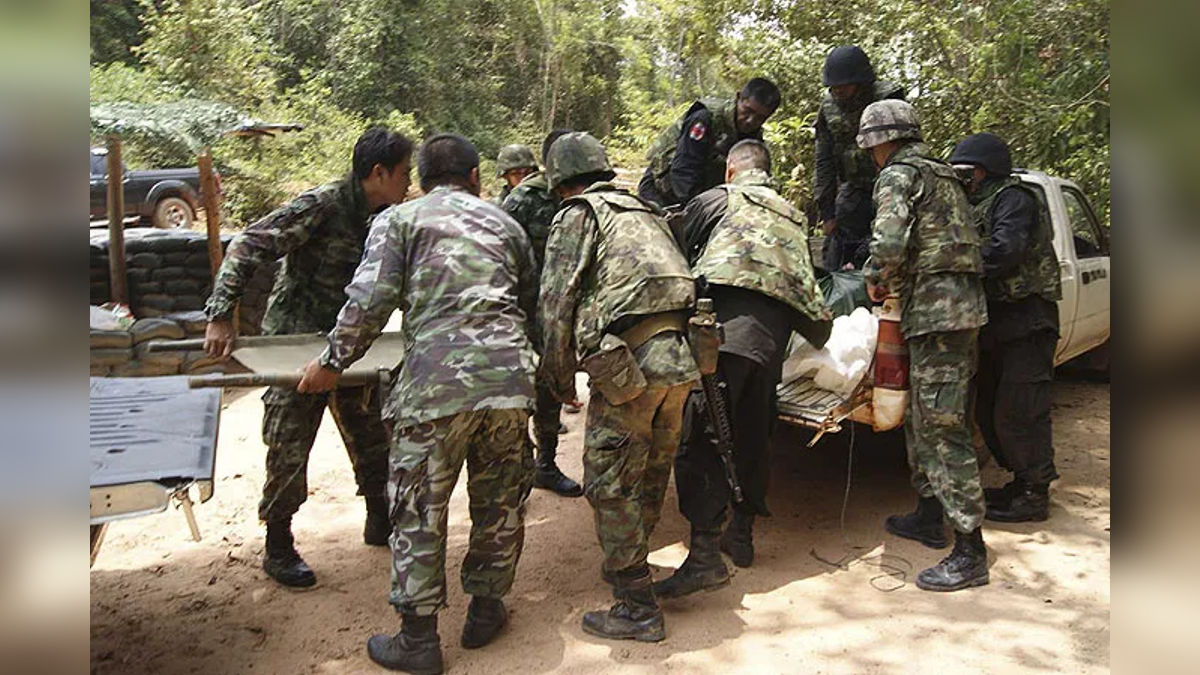Thailand and Cambodia have agreed to withdraw troops to earlier positions along a disputed section of their shared border after a recent clash left one Cambodian soldier dead, officials from both countries said Sunday (June 8).
Cambodia’s Defence Ministry said both sides aimed to ease tensions following the May 28 confrontation in an undemarcated area. The agreement followed talks between Cambodian and Thai officials, including Thai Defense Minister Phumtham Wechayachai, who confirmed both countries would return to positions established in a 2024 agreement.
The incident prompted both nations to reinforce their military presence in the area, though neither government provided details about troop deployments.
Calls for diplomacy and legal intervention
For days, Thai and Cambodian authorities have issued statements affirming their commitment to resolving the issue peacefully.
Thailand’s Phumtham said efforts were underway to defuse tensions and that the Joint Boundary Committee is expected to meet on June 14.
Cambodia’s Foreign Ministry, meanwhile, has renewed its call to bring the matter before the International Court of Justice (ICJ). In a June 6 letter shared with reporters, Foreign Minister Prak Sokhonn said the historical and sensitive nature of the dispute requires a legal resolution.
“Given the complexity, historical nature, and sensitivity of these disputes, it is increasingly evident that bilateral dialogue alone may no longer suffice to bring about a comprehensive and lasting solution,” Prak said.
“A decision rendered by the ICJ, grounded in international law, would offer a fair, impartial, and durable resolution,” he added.
Thailand has rejected international arbitration and insists that all boundary-related issues should be resolved through bilateral talks. The two nations have a history of disputes along their 817-kilometer (508-mile) border, much of it mapped by France in 1907 while Cambodia was under colonial rule.
Impact Shorts
More ShortsTensions reminiscent of past clashes
The latest flare-up is a reminder of previous conflicts. In 2008, a territorial dispute over an 11th-century Hindu temple escalated into armed skirmishes that lasted several years and left at least a dozen people dead, including during a week-long artillery exchange in 2011.
In response to the current tensions, Thailand cut operating hours at 10 official border crossings with Cambodia, citing security concerns. Checkpoints, including the busiest crossing in eastern Sa Kaeo province, now operate from 8 am to 4 pm local time, down from the previous schedule of 6 am to 10 pm, Thai Foreign Ministry spokesperson Nikorndej Balankura said Sunday.
Political backdrop adds complexity
The dispute comes at a time of change in both countries’ leadership. Previous warm relations between the two governments were partly attributed to the friendship between former Thai Prime Minister Thaksin Shinawatra and Cambodia’s long-serving leader Hun Sen. Now, with Thaksin’s daughter, Paetongtarn Shinawatra, and Hun Sen’s son, Hun Manet, serving as prime ministers, questions have arisen about how the younger leaders will manage the relationship.
Despite the tensions, both governments have signaled they intend to maintain diplomatic dialogue. Observers say the outcome of the upcoming boundary talks will test the strength of the current leadership’s commitment to resolving long-standing disputes peacefully.
With inputs from agencies


)

)
)
)
)
)
)
)
)



